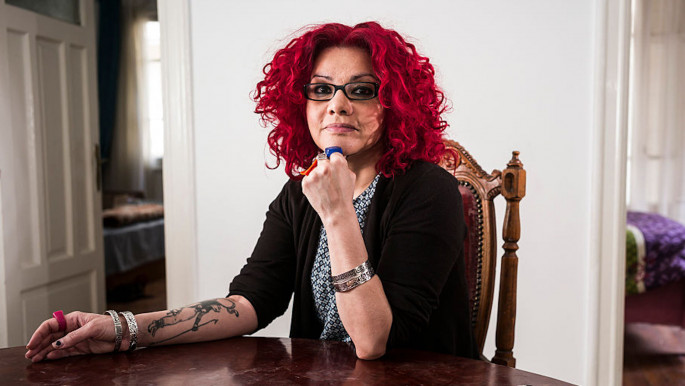'Unjust, regressive and demeaning': New draft law deems Egyptian women legally incapacitated
At the time when the world celebrates the International Women's day, the Egyptian cabinet, surprisingly involving eight female ministers, recently approved what was described by women's rights advocates as a rather regressive law that strips women of the rights they had seized over the past decades.
The 45-page draft law, leaked on February 23 by local independent Youm 7 newspaper, known for being loyal to the government, has been referred to the lower-house of the parliament for approval.
For over a century now, Egyptian women have been subjected to legislative trial and error. In 1915, a committee of high-ranking Islamic scholars attempted to form a personal status law in accordance with the four schools of Islamic thought within 'fiqh' (jurisprudence), but failed to achieve a concrete result.
Five years later, the then-Azhar Grand Imam Mohamed Abduh proposed an enlightened law that regulated marriage and divorce among other family-related issues.
It was not until 1929 for an Egyptian personal status law to be enacted based on the four schools, with amendments coming up throughout the years. The current law has not been amended since 2000.
"We practically have no contemporary legislation. We are following an archaic law that has been introduced more than 100 years ago," lawyer and women's rights defender Azza Soliman told The New Arab.
 |
We practically have no contemporary legislation. We are following an archaic law that has been introduced more than 100 years ago |  |
A discriminatory law?
The bill in question may appear at first to be pro-women's rights. But after being analysed by legal experts, it could be interpreted otherwise.
A woman is undermined, having no right to get her marriage ratified without a male guardian present regardless of her age or social status, according to the draft law.
While some Islamic scholars issued a 'fatwa' (religious edict) that an adult woman above the age of 21 has the right to get married on her own, many others declined the idea, insisting that there must be a male guardian to approve the marriage.
Not only that, a male guardian has the right to file a lawsuit and has the woman's marriage legally annulled within one year of its registration or his knowledge of it, either for reason of social inequality or because she got married against his will. The only conditions that prevent the annulment of matrimony are childbirth and pregnancy.
A mother has no authority to decide issues pertaining to the healthcare, education, travel and even the birth registry of her child in the absence the father.
Another article has to do with a divorced woman being unable to travel with her child outside Egypt without the former husband's approval. Yet if he has custody of the child, he has all the right to travel with him or her without the mother's consent.
 |
The law is rather contradictory and demeaning to women. How come a woman raises her children and takes custody of them, in case of divorce, and not granted legal guardianship? |  |
"The law is rather contradictory and demeaning to women. How come a woman raises her children and takes custody of them, in case of divorce, and not granted legal guardianship?" Soliman wondered.
"It further violates the international conventions Egypt ratified in the 1980s and distorts the country's image internationally."
The Convention on the Elimination of All Forms of Discrimination against Women (CEDAW) obliges Egypt, as a signatory state, to "refrain from engaging in any act or practice of discrimination against women, to ensure that public authorities and institutions shall act in conformity with this obligation," and to "take all appropriate measures to eliminate discrimination against women by any person, organization or enterprise."
The proposed legislation may have attempted to combat the phenomenon of underage marriages, common in rural areas, in the south and among low-income brackets, where families tend to marry their children without officially ratifying the marriage until they reach the legal marital age of 18.
However, some men eventually refuse to proceed with legal documents or recognise their children, mostly born without birth certificates.
The draft law stipulates that a lawsuit filed to have an undocumented marriage ratified will be rejected in case the age of the wife or the husband is below 18 at the time of filing it, which again leads to the loss of the rights of the wife and children if there are any.
Polygamy no more?
 |
| Read also: 'Egypt needs a feminist revolution' |
Even though the draft law gives a scope of rights to men over women, it was highly criticised by males.
Based on it, a man will be imprisoned for no more the one year and ordered to pay a considerable fine to the state if he marries another woman, without officially notifying his wife first.
Furthermore, the 'maazoun' (a legal registrar appointed by the justice ministry) who undertakes the man's other marriage while knowing he had not informed his wife will be fired from his post and sentenced to prison.
"Even though these law articles may be interpreted as a means of limiting polygamy, it could encourage men to go for extramarital affairs or 'urfi' [unregistered common-law marriage], which, in turn, result in the loss of the legal and financial rights of women and children," women's rights advocate and lawyer Entesar El-Said argued.
"If we look at polygamy in other countries, we find laws that support women's rights such as the Moroccan model. In Morocco, it is legal, but restricted by a law, mandating the financial and physical qualifications a man must meet to be allowed to marry a second wife with the permission of the first," she told The New Arab.
 |
Even though these law articles may be interpreted as a means of limiting polygamy, it could encourage men to go for extramarital affairs or 'urfi' [unregistered common-law marriage] |  |
Ahmed Karima, professor of comparative jurisprudence at Azhar university, begs to differ, arguing that the draft law contradicts sharia Islamic law" and is, in turn, "unconstitutional."
According to Karima, punishing a husband in case he does not notify his wife of his intention to get married to another woman is totally against sharia.
"A man cannot be punished for something that is rightfully his," he told national TV, adding that Azhar should be the main body tasked with drafting personal status law rather than the government.
Meanwhile, verbal divorce remains a subject of debate, which according to the draft law, only counts if it occurs once and documented.
Nevertheless, sharia stipulates that in case a man divorces his wife verbally three times while being pre-determined and mentally sane, they will be separated eternally. They can only get back together if the woman married another man and got divorced later.
In 2017, Egyptian president Abdel-Fattah El-Sisi called on Azhar to terminate verbal divorce unless documented by a maazoun or by a court, in a bid to limit the rising divorce rates in the country. However, Azhar Grand Imam Ahmed El-Tayeb and other Islamic scholars refuted Sisi's attempt for being against sharia.
Horriya Marzouk is a pseudonym. The author resides in a jurisdiction where the publication of their identity may create a security or freedom of movement issue
Join the conversation: @The_NewArab



